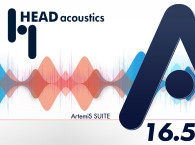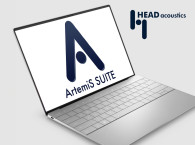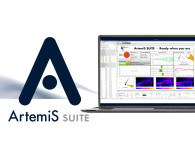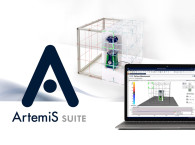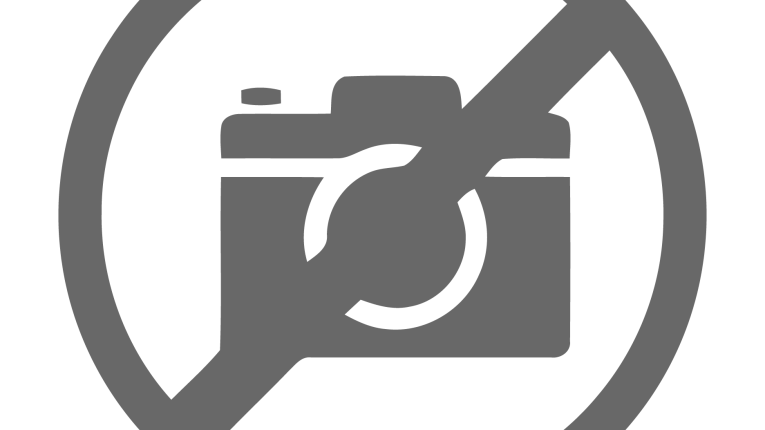
HEAD acoustics is one of the world's leading companies for sound and vibration analysis. Based out of Herzogenrath, near Aachen, Germany, the company has subsidiaries in China, France, Italy, Japan, South Korea, the UK and the USA, as well as numerous sales partners worldwide. HEAD acoustics' ArtemiS SUITE is a user-friendly and versatile software platform with a clear and easy-to-use modular structure. Its modules are grouped thematically into Projects and Tools (APR), Signal Processing & Extensions (ASP) and System Integration and Extension Interfaces (ASX) categories to avoid content overlaps and dependencies.
This division allows users to customize the software configurations according to their specific needs and application scenarios. Users can remotely operate their work in ArtemiS SUITE with the Remote Desktop Protocol, which is now generally included with the new software release.
The UI revision includes a simplified insert dialog for analyses and destinations and a redesigned license dialog that improves access to essential information about all found local or network keys, groups them by types, and filters them by code, name, or additional tags.

New Audio Player functions include a revised, more ergonomic single-line layout and access to all player functionalities at a glance. The refreshed Tachos tool window considers multiple control channels in advanced use cases.
The licensing of the Transfer Path Analysis (TPA) project is now part of the ArtemiS SUITE software environment. In ArtemiS SUITE 15, the project offers improved model creation and calculation of the transfer functions for structure-borne and airborne sound according to different methods, such as matrix inversion for indirect determination of forces or volume velocity, blocked forces, effective mount transfer functions, and airborne sound sensitivity.
In ArtemiS SUITE, users can also perform the synthesis of path contributions in the time domain and export ready-to-use models for optional analysis and post-processing to Prognoise, the software for binaural transfer path analysis and synthesis. The Modal Analysis, Shape Comparison, and ODS projects are integrated and work seamlessly with the TPA project.

With the ArtemiS SUITE Release 15, HEAD acoustics also introduced an updated interface to the Augmented Reality solution from HoloMetrix, making a physical measurement grid obsolete and sound power measurements more efficient and reliable. ArtemiS SUITE 15 provides users with a powerful means for quick and efficient sound power measurement based on sound pressure (DIN ISO 3744 ff) and sound intensity measurements (DIN ISO 9614), either using the discrete point or the scanning method.
The psychoacoustic analyses according to the 2nd edition of the standard ECMA 418-Part 2 are now implemented in ArtemiS SUITE 15. The standard describes the psychoacoustic loudness calculation method, significantly improving the loudness prediction of any signal containing narrowband and/or tonal components compared to the well-established Zwicker as well as Moore and Glasberg methods. In addition, it refines the already existing tonality and roughness procedures. The Sottek Hearing Model, developed by the HEAD acoustics research team, forms the basis of the standard’s psychoacoustic methods.
ArtemiS SUITE works perfectly with the HEADlab hardware front end - with the advantage of tight synchronization via Precision Time Protocol (PTP). However, some users have already adopted different data acquisition systems but do not want to forego the advanced, unique, and versatile ArtemiS SUITE features. That’s why the new Artemis SUITE 15 release now supports additional third-party hardware and software. This makes the possibilities for users to integrate their tools and workflows seamlessly are thus greatly enhanced.
Released approximately a year since the previous major release, ArtemiS SUITE 15 is already available for download and licensing.
www.head-acoustics.com




